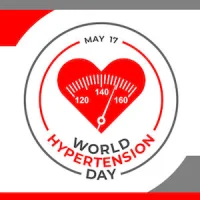The Food and Drug Administration (FDA) has been recalling several blood pressure medications that contain valsartan. The drug is commonly prescribed to patients with hypertension. The recent recalls have been due to concerns regarding the presence of N-nitrosodimethylamine (NDEA), a carcinogenic element that could cause cancer in patients who are regularly taking the drug.
The valsartan recall saga began in July 2018, and despite immediate action taken against certain drug manufacturers, more recalls continue to take place. Just recently, 80 lots of medicines from Aurobindo Pharma USA that contain valsartan have been recalled because of the presence of NDEA.
Valsartan is an angiotensin-II receptor antagonist that is widely prescribed in patients with high blood pressure.
Valsartan recalls are not limited to the US. Similar recalls have been issued in the European Union, Taiwan, and South Korea. A large majority of the valsartan formulations that have been recalled were from companies that have manufacturing facilities in China and India.
The recalls were first initiated when Zhejiang Huahai Pharmaceuticals notified the FDA of the impurity. Since then, nearly ten pharmaceutical companies that source form the Chinese plant have been affected by this recall. It is believed that a manufacturing change at Zhejiang Huahai Pharmaceutical exposed the valsartan to NDMA. The same valsartan is used by several US brands hence the recall.
It is important to note that all valsartan formulations are not affected by this recall. The complete list of recalled valsartan products is available on the FDA’s website. Patients are being advised to continue to take their medication and consult their healthcare provider for an alternate prescription before discontinuing the drug. Patients are also being advised to check the name of the pharmaceutical company that manufactures their valsartan before discontinuing. This is extremely important since patients with hypertension should not stop their medicines abruptly.
Concerning the impact of the NDEA on patients who have been consuming the tainted valsartan formulations, the FDA has stated that it is in the process of investigating the potential harm. NDEA is believed to be toxic for the liver and other organs, but the FDA is still evaluating the long-term impact of the NDEA-impurity. However, patients who are on valsartan and who experience symptoms such as fever, cramps, dizziness, headache and/or vomiting should contact their healthcare provider immediately.
The valsartan recalls are a cause for concern mainly because the drug is widely prescribed. These recalls are likely to cause a shortage, but the FDA is assuring patients that it will do everything to ensure an adequate supply of valsartan formulations that are not contaminated.
The valsartan recall saga also highlights another important issue in healthcare that needs to be taken seriously. The safety and efficacy of drugs that are made overseas but are marketed in the US need to be closely monitored. It might be time to improve the safety processes and to ensure that such recalls do not take place in the future, especially for drugs such as valsartan which can really affect the long-term health of patients.
Source: FDA
Image Credit: iStock
Latest Articles
hypertension, valsartan, NDEA, Zhejiang Huahai Pharmaceuticals
The Food and Drug Administration (FDA) has been recalling several blood pressure medications that contain valsartan. The drug is commonly prescribed to patients with hypertension. The recent recalls have been due to concerns regarding the presence of N-ni










